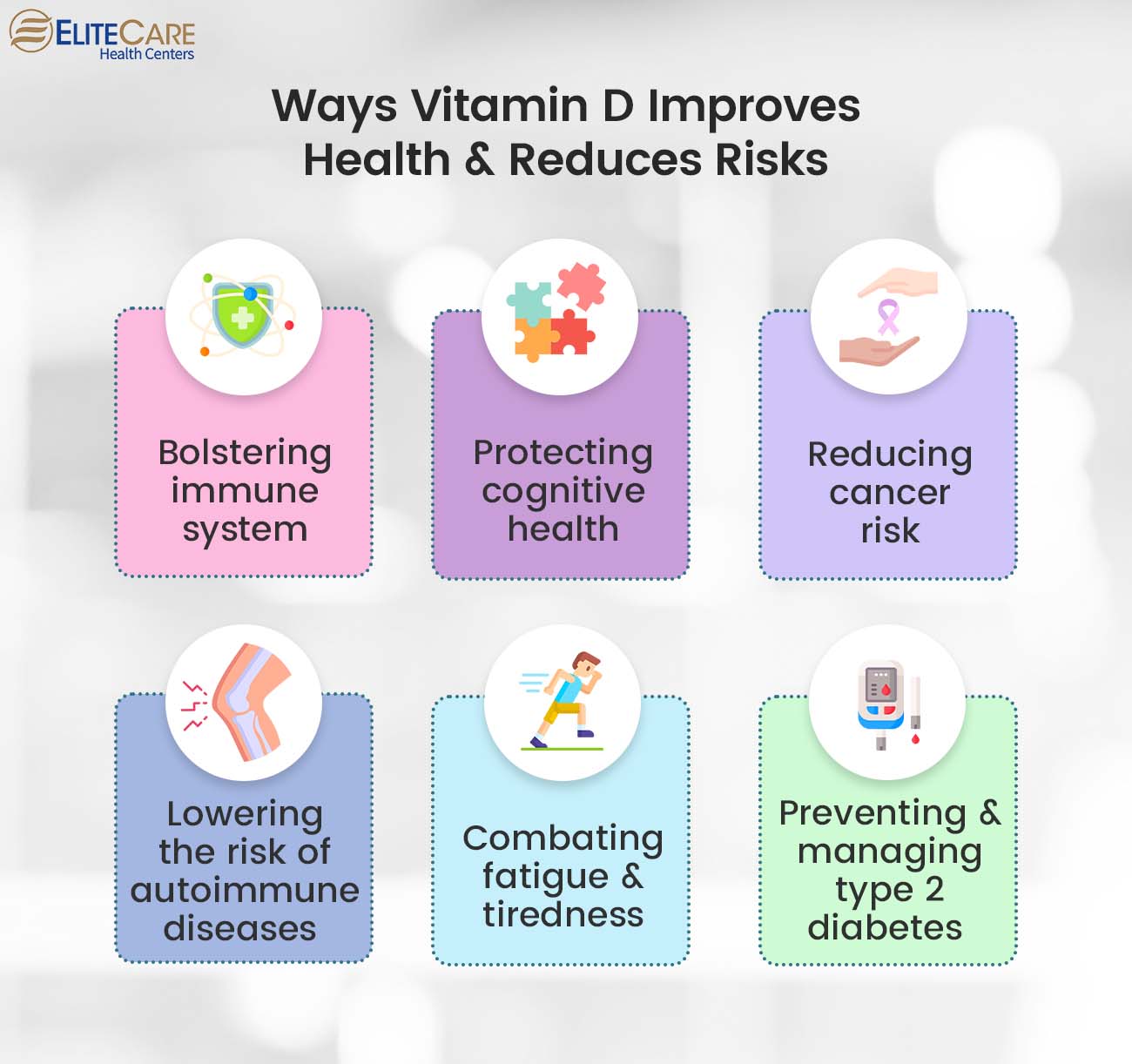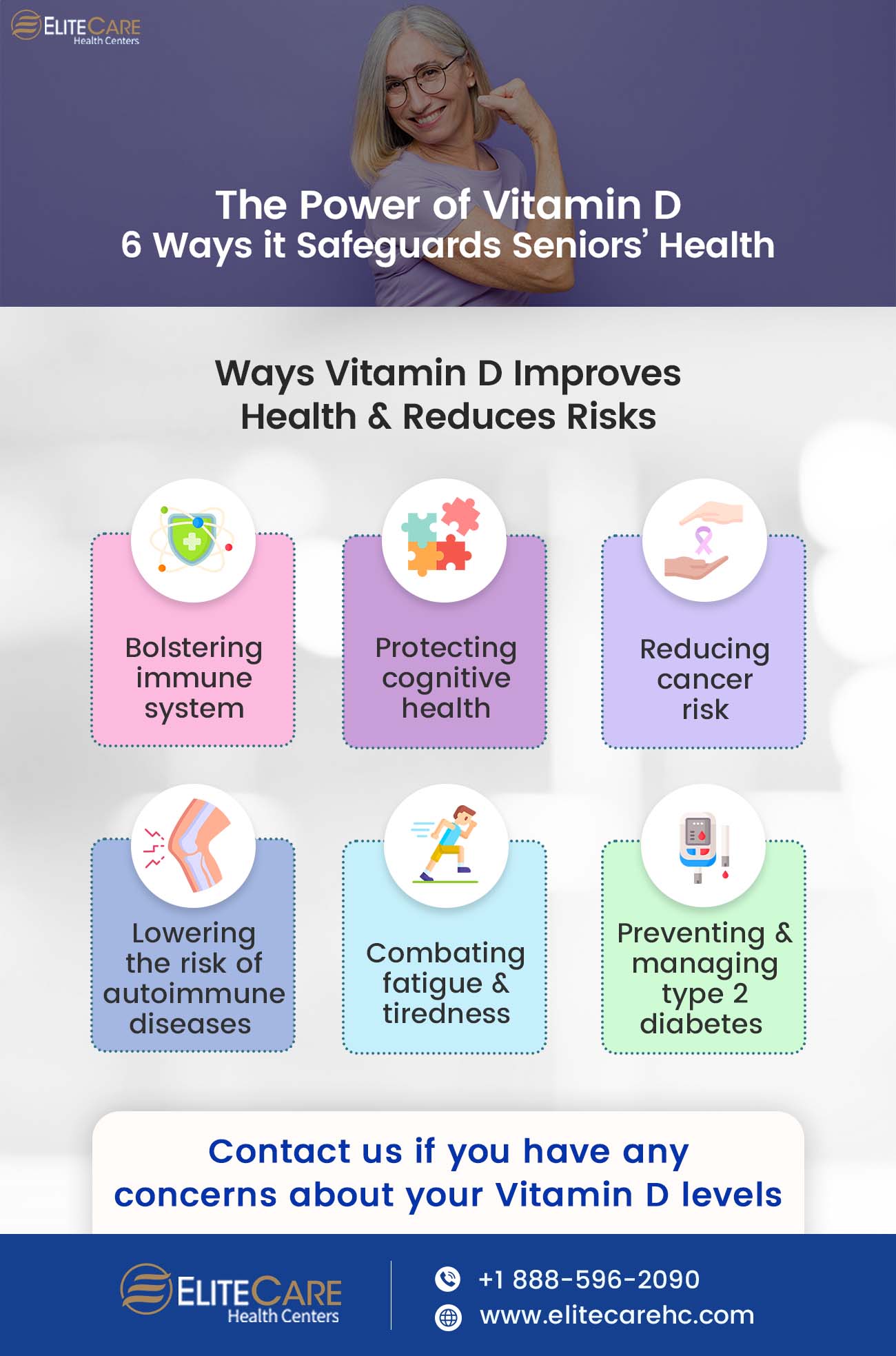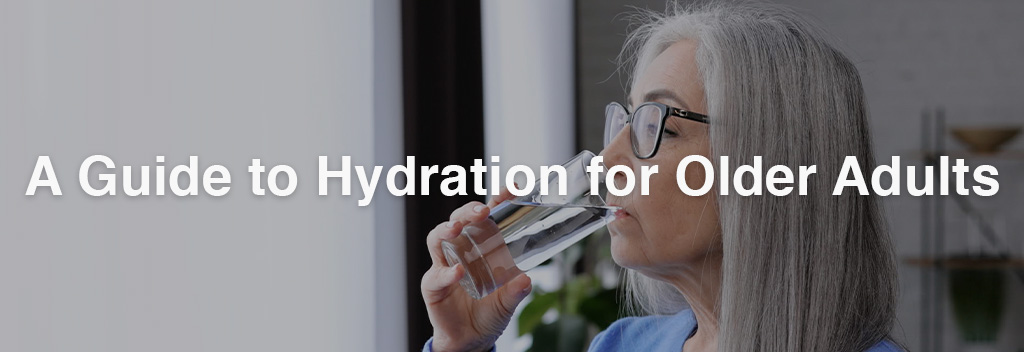
The secret to a lively and active life lies in a simple nutrient – vitamin D. For seniors, it plays a crucial role in helping seniors thrive during their golden years, supported by primary care services.
When it comes to staying healthy, vitamin D plays a vital role. It goes beyond just supporting bone health and calcium absorption. Vitamin D is a champion for one’s body, ensuring proper immune function, brain activity, and muscle performance. It offers numerous benefits that directly contribute to one’s overall well-being.
As we age, many of us face the challenge of not getting enough vitamin D. Factors like reduced exposure to sunlight and difficulty absorbing vitamin D from food can lead to this deficiency. Lack of Vitamin D is a silent threat that can impact seniors’ health and increase the risk of various diseases, potentially compromising their well-being.
In this blog post, we will share different ways in which seniors can ensure adequate vitamin D intake. Get ready to embrace a brighter, healthier future where vitamin D benefits help one age gracefully. Let’s get started
Understanding Vitamin D Deficiency
Insufficient vitamin D levels can lead to weakened bones, increased susceptibility to infections, muscle weakness, and even higher risks of chronic diseases such as heart disease, diabetes, and certain cancers. Seniors must be aware of these risks and take action to maintain optimal vitamin D levels with the support of health care centers.
Factors Contributing to Vitamin D Deficiency
Several factors contribute to vitamin D deficiency in seniors. The aging process affects the body’s ability to efficiently produce vitamin D. Additionally, reduced exposure to sunlight, a primary source of vitamin D synthesis, can be a common factor among seniors seeking senior care services.
Spending more time indoors, living in regions with limited sunlight, wearing protective clothing that covers the skin, and using sunscreen can further hinder the body’s ability to produce vitamin D.
Moreover, certain medical conditions, such as malabsorption disorders and kidney or liver diseases, can also impair the absorption and utilization of vitamin D, highlighting the importance of medical clinics and senior care services in understanding and addressing these factors to help seniors proactively overcome vitamin D deficiency.
Read More: Types of Preventive Care to Ensure Healthy Life for Seniors
Ways Vitamin D Improves Health and Reduces Risks

Bolstering immune system
Research suggests that vitamin D can enhance the function of immune cells, helping to ward off infections and reduce the risk of respiratory illnesses.
A strong immune system is particularly important for seniors, as they are more vulnerable to infections, and their immune response may weaken with age. By maintaining optimal vitamin D levels with the guidance of primary care physicians, seniors can boost their immune systems and better protect themselves against common illnesses.
Protecting cognitive health
Vitamin D has been linked to cognitive health, and studies have shown that seniors with sufficient vitamin D levels may have a reduced risk of cognitive decline and dementia. Vitamin D receptors are present in brain areas involved in memory and cognition.
Adequate vitamin D levels may promote brain health, support cognitive function, and potentially reduce the risk of conditions such as Alzheimer’s disease. Trustworthy health care clinics like EliteCare Health Centers can play a crucial role in ensuring seniors have access to the necessary information and support to maintain their vitamin D levels.
Lowering the risk of autoimmune diseases
Autoimmune diseases, such as rheumatoid arthritis, multiple sclerosis, and lupus, are characterized by an overactive immune system that mistakenly attacks healthy tissues. Emerging research suggests that vitamin D plays a role in modulating immune responses and may help lower the risk of autoimmune diseases.
Seniors with sufficient vitamin D levels may experience a reduced incidence or severity of autoimmune conditions. By maintaining optimal vitamin D levels, seniors can potentially protect themselves against the development or progression of autoimmune diseases, with the convenience of online doctor consultation for guidance.
Preventing and managing type 2 diabetes
Routine physical exams play a crucial role in senior care services, offering a valuable opportunity for primary care physicians to monitor overall health and address potential health concerns. One significant aspect to assess during these exams is vitamin D levels, which have shown promise in preventing and managing type 2 diabetes, a condition affecting many seniors.
Studies have revealed that individuals with higher vitamin D levels may have a lower risk of developing type 2 diabetes. Moreover, for those already diagnosed with diabetes, sufficient vitamin D intake has been associated with improved blood sugar control and enhanced insulin sensitivity. By ensuring optimal vitamin D levels, seniors can potentially reduce their risk of type 2 diabetes and better manage the condition.
Read More: Importance of Preventive Care for Senior Citizens
Reducing cancer risk
Annual physical exams are essential for seniors’ well-being, enabling healthcare professionals to evaluate overall health, detect potential health issues, and implement preventive measures. One crucial aspect to consider during these exams is vitamin D levels, as they may play a role in reducing cancer risk.
Research suggests that higher vitamin D levels are associated with decreased risks of various cancers, including colorectal, breast, prostate, and others. Vitamin D helps regulate cell growth, preventing the proliferation of cancer cells. Seniors who maintain sufficient vitamin D levels can potentially lower their cancer risk and support overall cancer prevention.
Combating fatigue and tiredness
Vitamin D deficiency has been linked to fatigue, which can significantly impact seniors’ quality of life. Studies have shown that vitamin D supplementation can improve fatigue levels and increase energy in individuals with low vitamin D levels.
Seniors who ensure adequate vitamin D intake may experience reduced fatigue and increased overall energy levels. Seniors can combat tiredness by addressing vitamin D deficiency and enjoy a more active and fulfilling lifestyle.
Recommended Daily Vitamin D Intake for Seniors
To maintain optimal health, seniors must ensure they get enough vitamin D. The recommended daily vitamin D intake varies based on age and health status.
Generally, it is recommended that adults aged up to age 70 should aim for a daily intake of at least 600 international units (IU) of vitamin D. For seniors older than 70, the minimum recommended dose is 800 IU per day.
However, for those with certain medical conditions or at a higher risk of deficiency, higher doses may be recommended under the guidance of a healthcare professional.
Challenges in Obtaining Sufficient Vitamin D from Diet Alone
While diet plays a role in vitamin D intake, it can be challenging for seniors to obtain sufficient amounts of vitamin D from food alone. Natural food sources of vitamin D include fatty fish like salmon and mackerel, fortified dairy products, and egg yolks. However, these dietary sources may not provide enough vitamin D to meet the recommended daily intake.
Additionally, factors such as dietary restrictions, limited food choices, and decreased appetite in older adults can further hinder the ability to obtain adequate vitamin D through diet alone.
Ensuring Sufficient Vitamin D Intake
Take Vitamin D Supplements
- Choose supplements containing vitamin D3 (cholecalciferol) for maximum effectiveness.
- Consult with a healthcare professional to determine the appropriate dosage for your needs.
- Look for over-the-counter options available in tablets, capsules, or liquid drops.
Consume Fortified foods
- Incorporate fortified milk, yogurt, breakfast cereals, and orange juice into your diet.
- These products are enriched with vitamin D to help boost your daily intake.
- Ideal for individuals with dietary restrictions or preferences.
Importance of Regular Sunlight Exposure
Moderate sun exposure:
Aim for brief and regular periods of sun exposure. The primary source of vitamin D in our bodies is through our skin’s production. Sunlight’s ultraviolet rays are crucial in forming vitamin D3, and it’s later converted into the active form of vitamin D by the liver and kidneys. Several factors influence vitamin D3 production, such as skin pigmentation, age, location, time of day, and season.
For instance, according to a study, for Missouri’s latitude, in spring and summer, exposing about 25 percent of one’s body (hands, face, neck, and arms) to the sun for 8 to 10 minutes at noon can provide the recommended vitamin D amount. However, during winter, when only 10 percent of the body is exposed, nearly 2 hours of sun exposure at noon becomes necessary for sufficient vitamin D production.
Understanding these variables is essential in maintaining adequate vitamin D levels for overall health. That said, one must consult a healthcare professional to figure out the kind of exposure which is required based on location, climate, and skin type.
Sun protection:
- Take necessary precautions to protect your skin from excessive sun exposure.
- Wear sunscreen, protective clothing, and hats when spending extended periods outdoors.
- Strike a balance: One should soak in vitamin D’s goodness while protecting their skin. Apply sunscreen properly to avoid sunburn while enjoying the sun’s benefits.
The Bottom Line
Prioritizing sufficient vitamin D intake is vital for seniors’ overall health. Understanding the risks of deficiency and acting promptly can reduce health risks and enhance your well-being. Vitamin D is crucial in bolstering immunity, protecting cognitive health, lowering autoimmune disease risk, managing diabetes, reducing cancer risk, and combating fatigue.
At EliteCare Health Centers, we prioritize the health and well-being of seniors. Our dedicated healthcare professionals are here to provide personalized care and support. We encourage you to contact us if you have any concerns about your vitamin D levels or other healthcare needs. Visit our website to learn more about our comprehensive healthcare services and schedule an appointment today.






